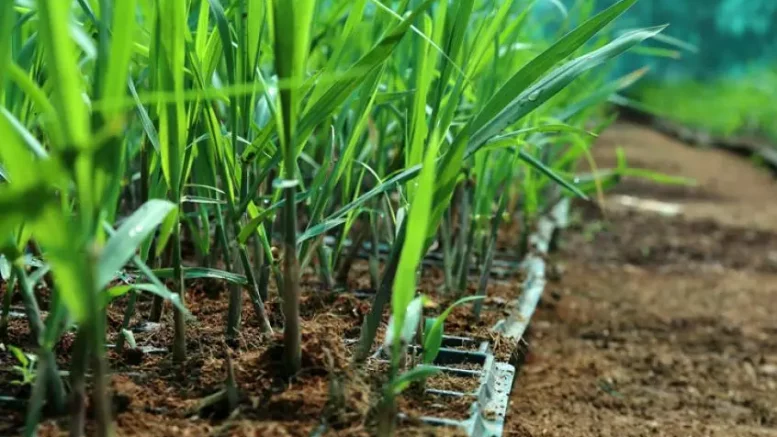“The new technology will accelerate the adoption of new varieties, which will also favor the expansion of our market share…”
Suzeti Ferreira is the marketing director of the Sugarcane Technology Center – CTC, graduated in biology from São Judas Tadeu University, with an MBA from Insper.
Silvia Yokoyama is the director of regulatory affairs at CTC, with a degree in food engineering from Unicamp, and an MBA and M.Sc. from FGV.

Silvia Yokoyama, director of regulatory affairs at CTC
AgriBrasilis – What is the focus of sugarcane research in Brazil?
Ferreira and Yokoyama – A global leader in sugarcane science, CTC brings together a portfolio of high-yield, pest-resistant varieties. Complete and comprehensive, it includes varieties that can be used throughout the season, in different production environments.
This portfolio is constantly being reinforced with varieties that present high yield, exceeding market standards.
The second generation of biotechnology should be made available to the market in the next harvests. In addition to the very high-yield genetics, this generation should bring advances to the sector in weed management.
In addition to this complete portfolio, the advent of sugarcane seeds stands out – a disruptive project by CTC that should be implemented on a commercial scale within a few seasons. The new technology will accelerate the adoption of new varieties, which will also favor the expansion of our market share.
The search for more productive varieties adapted to different types of soil and environments is key for the sector. To drive the adoption of these technologies, we have a large sales team in the field, with vast experience in sugarcane, in addition to a multidisciplinary team of consultants available to our clients.

Suzeti Ferreira, marketing director at CTC
In addition to technical support, CTC invests in its Improvement Program and seeks to bring genetic gains of over 3% per year, which will translate into new varieties with yields of 16 to 18 tonnes of sugar per hectare within five to ten years.
AgriBrasilis – What are the alternatives for controlling the sugarcane borer (Diatraea saccharalis)?
Ferreira and Yokoyama – CTC has four GM varieties adapted to the climate and soil conditions of the various sugarcane farming regions. Because they are resistant to the sugarcane borer, they protect against yield losses caused by the insect, reduce production costs and bring gains in sustainability. The borer causes losses estimated at US$ 881.98 million per year to Brazilian sugarcane farms.
AgriBrasilis – How to improve yield indicators for sugarcane crops, such as average Total Recoverable Sugars (TRS)?
Ferreira and Yokoyama – To improve yield indicators for sugarcane crops, both in terms of average TRS and tonnes of sugarcane per hectare, some practices are fundamental. For example, correct management of sugarcane varieties is essential, which means allocating varieties according to location, climate and time of year. Old varieties tend to lose efficiency, so the focus should be on adopting more modern varieties, which bring technological advances and offer better results.
It is also crucial to follow the specific technical recommendations for each variety. Applying management correctly, following detailed guidelines, ensures maximum yield.
It is necessary to consider external factors, such as planting and harvesting times, in addition to environmental characteristics, such as soil and climate. These variables directly influence sugarcane performance and, if properly analyzed, help to maximize results.
The use of sugarcane ripeners can also be an alternative to optimize yields.
“Public policies have significantly influenced research and development in the sector”
AgriBrasilis – How have public policies affected research and development in the sector?
Ferreira and Yokoyama – Public policies have significantly influenced research and development in the sector through two major pillars: training specialized professionals and funding directed at innovation projects.
First, there is a strong incentive to train professionals in strategic areas, such as renewable energy, environmental sustainability, mitigating the effects of climate change, and preserving natural resources. Public policies aimed at training seek to increase the number of specialists in these farms.
In addition, there are lines of funding that directly support R&D projects, including areas such as data science applied to sustainability and renewable energy, in addition to investment in strategically positioned research parks. This financial support encourages the incorporation of new technologies, in addition to strategic partnerships with other institutions and countries.
These incentives, both in training and funding, reflect the government’s and stakeholders’ perception of the importance of these topics for the country’s development.
AgriBrasilis – What contributed to the significant growth in the company’s profits?
Ferreira and Yokoyama – CTC recorded a record profit of US$ 26.86 million in the 2023/24 season year, 66.6% higher than in the previous season. What contributed to the significant increase in profits was the growth in revenue and increase in the company’s EBITDA. The improvement in the product mix, with the sale of varieties with higher added value and higher margins, contributed to the positive result.
READ MORE:

